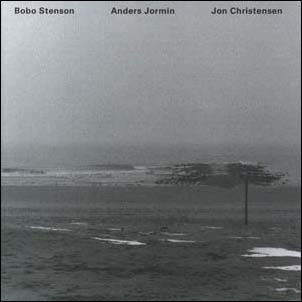スウェーデンのピアニスト、ボボ・ステンソンのトリオによる1997年の録音作。キューバのシンガーソングライター、シルヴィオ・ロドリゲスの曲で始まり、デューク・エリントンの「melancholia」で終わる幅広い楽曲群。Anders JorminやBobo Stensonによるオリジナル、さらにトリオが深く感銘を受けたタイトル・トラックを含むOrnette Colemanによる2曲を収録。「オーネットのメロディには大きな自由があります」スウェーデンのピアニスト、Stenson。あらゆる曲の感情的な雰囲気を微妙に探る傑出したピアニスト。 「すべてのテンポ、すべての鍵盤、すべての音楽的状況において、彼のノートは現実の存在のように空中に浮かぶ」
発売・販売元 提供資料(2018/12/19)
While the last Bobo Stenson Trio offering found the band cohesively searching for a new harmonic language together and separately as composers, on War Orphans they seem to have found it. Stenson (piano), Anders Jormin (double bass), and Jon Christensen (drums) have sought to distill their tonal language into meditational musical space. They are content to open everything up slowly to get everybody on board and then head for new harmonic directions constantly, through melodic invention and lyrical interplay. As evidence of this, only one of the album's eight selections is by Stenson, three are by Jormin, and the rest by Ornette Coleman (two works including the title), Duke Ellington, and Silvio Rodriguez, whose "Oleo de Mujer Con Sombrero" opens the album. Stenson plays the melody in the upper register, a full octave higher than the original. Jormin takes a Mingus-like role, playing melody and counterpoint simultaneously and never stepping out of Christensen's rhythmic boundaries. On Coleman's title track, the trio fuels a quiet fire with responsive harmonic invention by tracking mode and interval to the melodic source -- and if you can't hear melody in Coleman, then you can't hear. Stenson takes the melodic idea, reduces it to five notes, and allows Jormin to bow in near silence as if he were playing a drum. The tonal range of his restraint is noted in the way Stenson reassembles the melody and brings with it the resident deep emotion it was composed with. Christensen whispers along his cymbals and snare. The delicate overtonal balance is swaying between piano and bass, fragile, sorrowful, and sharp. When Stenson finds the melodic part of the tune coming around again, he stutters and staggers the harmony, and just when you think it will go into overdrive, his glistens head to a shimmering, near-silent close. This was truly a meditation on death. On Jormin's "Sediment" we hear the lighter side of the trio playing out a series of chromatic interludes that resemble preludes but are actually interludes with a melodic framework to guide them through their open, spatial architecture here. On this tune, we can hear Paul Bley's influence come to bear on Stenson, as he organizes the melodic frame around the space Jormin has given him to play it. It's cool and collected and musically out of this world when Stenson's arpeggios begin to move angularly against the rhythm. The set closes with a gorgeous reading of Ellington's "Melancholia," a healthy dose of balladic psychosis wrapped around a creative jazz fugue. Everyone seems to be playing out of time, but the time is in the center of the changes that are stretched out to the breaking point and left for dead as new ones enter the intervallic proscenium. Stenson's power as a pianist is in full evidence here; one can hear every year he put in with Charles Lloyd holding down the ever-weird fort where melody and harmonic strangeness fought each and every night and resolution was temporal and fleeting. As the trio moves through the middle and end of the tune, it's Christensen who shows its true flavor by stomping the sh*t out of the rhythm and changing it to suit his own improvisational needs since the band is so adaptable. Seven time signatures reveal themselves before it's all done and a flurry of soft arpeggios on top of diminished ninths. As the melody disappears into silence, the listener becomes aware that he or she has just witnessed something aurally so special he or she will be tempted never to play it again for fear of losing its feeling. Not to worry; it happens every time. ~ Thom Jurek|
Rovi



